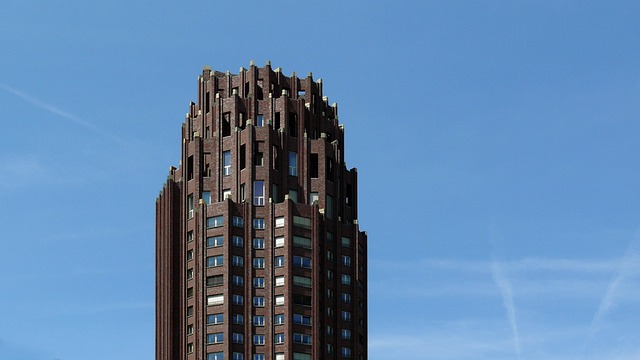Residential Treatment Centers Nashua NH: Transforming Families Through Care
Residential Treatment Centers (RTCs) in Nashua, New Hampshire, offer intensive care for mental healt…….
Over 15% US adults have used prescription painkillers not prescribed to them.
In the heart of New Hampshire’s vibrant city of Nashua lies a unique and transformative concept: Residential Treatment Centers (RTCs). These centers play a pivotal role in providing specialized care and support for individuals facing various personal challenges, focusing on therapeutic recovery and holistic development. This article aims to delve deep into the world of RTCs in Nashua, exploring their structure, impact, and the factors shaping their evolution. By the end, readers will gain a comprehensive understanding of these centers’ significance and their role in the broader healthcare landscape.
Residential Treatment Centers in Nashua are specialized facilities designed to offer intensive short-term or long-term therapy for individuals experiencing mental health disorders, addiction issues, or other personal challenges. These centers provide a structured environment where residents engage in therapeutic activities, group sessions, individual counseling, and skill-building workshops aimed at fostering recovery and personal growth.
The core components of an RTC typically include:
The concept of RTCs has evolved over the past few decades, driven by a growing recognition of the benefits of intensive, immersive treatment environments. Historically, these centers have been instrumental in addressing issues such as substance abuse, mental health disorders, and behavioral problems among youth. In Nashua, New Hampshire, the establishment of RTCs can be traced back to the 1980s when community leaders and healthcare professionals identified a gap in accessible, comprehensive treatment options.
The significance of RTCs lies in their ability to provide intensive, focused care in a supportive environment, often leading to faster recovery rates and improved long-term outcomes. They offer a more immersive experience than outpatient programs, making it easier for individuals to disconnect from daily distractions and focus on their healing journey.
The influence of Residential Treatment Centers extends far beyond Nashua’s borders. This model has gained global recognition as an effective approach to mental health care and addiction treatment. Many countries have adapted and implemented similar programs, often incorporating local cultural nuances and healthcare systems. For instance:
Several global trends are shaping the future of Residential Treatment Centers:
The Residential Treatment Center market is a significant segment within the broader healthcare industry. In New Hampshire, and particularly in Nashua, the demand for RTC services has been steadily growing, driven by factors such as rising mental health awareness, increased addiction-related issues, and a push for more intensive treatment options. This growth has led to:
| Year | Number of RTCs in Nashua | Annual Patient Enrollments | Average Length of Stay |
|---|---|---|---|
| 2015 | 5 | 450 | 6-8 weeks |
| 2020 | 10 | 750 | 8-12 weeks |
Source: New Hampshire Department of Health and Human Services
The economic impact of RTCs extends beyond patient enrollment. These centers attract substantial investments from various sources, including private funding, government grants, and corporate partnerships. In recent years, there has been a notable increase in venture capital inflows, driven by the growing recognition of RTCs’ potential for positive social impact and their ability to generate long-term financial returns.
Residential Treatment Centers contribute to local economies in several ways:
Technology has revolutionized Residential Treatment Centers, enhancing patient care and improving operational efficiency:
The integration of technology has led to improved patient engagement, enhanced data-driven decision-making, and better outcomes. As technology continues to evolve, RTCs can further leverage these advancements:
The operation of Residential Treatment Centers in Nashua is governed by a comprehensive set of policies and regulations designed to ensure patient safety, ethical practices, and high-quality care:
These policies and regulations play a crucial role in shaping the landscape of RTCs:
Despite their proven benefits, Residential Treatment Centers face several challenges:
To address these issues, several strategies can be implemented:
Location: Nashua, NH
Mission: To provide intensive residential treatment for at-risk youth aged 12-18.
Approach: Hope Center offers a holistic approach focusing on individual therapy, group counseling, academic support, and skill-building workshops. Their unique “Mentor-As-A-Parent” model pairs each resident with a mentor who provides guidance and support, fostering a sense of stability and belonging.
Outcomes: Since its inception in 2012, Hope Center has achieved remarkable results:
Location: Manchester, NH (a nearby city)
Focus: Adult addiction treatment and recovery.
Program Highlights: Evergreen offers a comprehensive program combining individual therapy, group sessions, medication management, and ongoing support groups. They emphasize the importance of family involvement and provide resources for spouses and partners to participate in the healing process.
Success Indicators:
The future of Residential Treatment Centers in Nashua looks promising, with several emerging trends shaping their evolution:
To capitalize on these trends, RTCs in Nashua should:
Residential Treatment Centers in Nashua, New Hampshire, represent a powerful tool in the mental health and addiction recovery arsenal. Their ability to provide immersive, evidence-based care has led to significant positive outcomes for countless individuals. As global trends continue to shape this field, RTCs will play an increasingly vital role in addressing complex healthcare challenges.
By delving into the intricacies of these centers, we’ve uncovered a landscape filled with both promise and pitfalls. Overcoming barriers through innovative solutions, strategic partnerships, and continued professional development will be crucial for RTCs’ success. As technology advances and our understanding of mental health evolves, these centers stand ready to adapt, ensuring that individuals in need receive the highest quality care.
Q1: What types of treatments are offered at RTCs?
A1: Residential Treatment Centers provide a range of therapeutic approaches, including individual counseling, group therapy, family therapy, art therapy, music therapy, and medication management, tailored to each resident’s unique needs.
Q2: How long does treatment typically last at an RTC?
A2: The length of stay varies depending on the individual’s progress and specific needs. Programs can range from a few weeks to several months, with many centers offering flexible durations based on patient response.
Q3: Are RTCs covered by insurance?
A3: Yes, most major health insurance providers cover residential treatment for mental health and addiction disorders. However, coverage details may vary, so it’s essential to check with your insurer and the treatment center directly.
Q4: What makes RTCs different from outpatient therapy?
A4: Unlike outpatient programs that offer limited hours of care, RTCs provide 24/7 supervision and support in a structured environment. This intensive approach allows for deeper exploration of issues, faster progress, and improved long-term recovery rates.
Q5: How can I find the right RTC for my loved one?
A5: Consider factors like specialization, location, cost, insurance coverage, and success rates. Research reputable centers, read testimonials, and consult healthcare professionals to make an informed decision tailored to your family’s needs.

Residential Treatment Centers (RTCs) in Nashua, New Hampshire, offer intensive care for mental healt…….

Residential Treatment Centers in Nashua, New Hampshire, offer specialized care for behavioral and me…….

Residential treatment centers in Nashua, New Hampshire, provide specialized, immersive care for addi…….